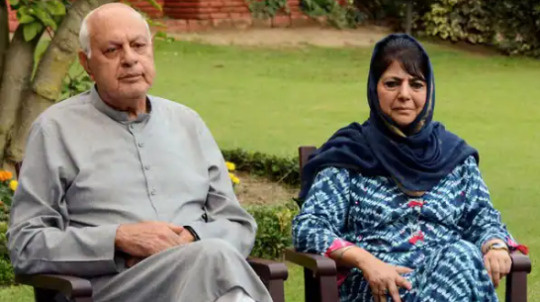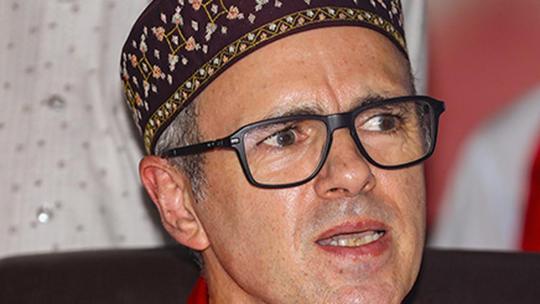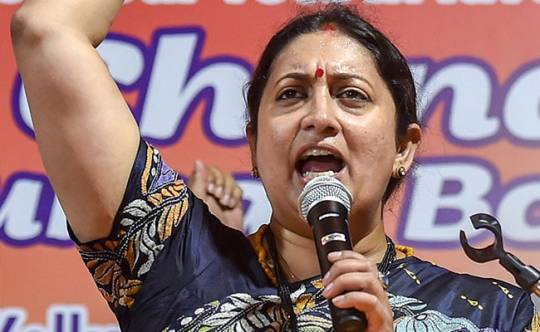#Gupkar Declaration
Explore tagged Tumblr posts
Text
A Play without a Prince
A pathetic drama without its protagonist, the political theatre waiting for its absentee lead
By Faisul Yaseen
The first polls in Jammu and Kashmir after the abrogation of Article 370 seemed like staging Hamlet without the Prince of Denmark.
Like the removal of Shakespeare’s great tragedy’s most iconic character, removing Article 370 from J&K left an irresistible void in the drama of Kashmir’s politics – one that removes the very cause that has defined its identity, politics, and relationship with the country over decades.

The Article 370 has provided the founding element in the historical and political context of Kashmir. Ensconced in the Constitution of India in 1949, it endowed Jammu and Kashmir with special autonomy, providing the State with its own constitution, laws, and considerable powers to govern its internal affairs. In simple words, this special status was symbolic of the unique political and cultural identity of the region.
The Article 370 has been an integral part of the political discourse in Kashmir for decades and constitutes the very core of mainstream politics that gave it a legal and a constitutional cloak. Regional parties like the National Conference (NC) and the People’s Democratic Party (PDP) built their entire political narratives on protecting this special status. For separatists, it acted as a stepping stone toward their broader claim of resolution of the Kashmir issue. Whether it was for or against it, Article 370 was the one unifying element around which political life in Kashmir vibrated.
The sudden abrogation of Article 370 by the Government of India (GoI) on August 5, 2019, rocked the political contours. It was cited as a necessity to improve and assimilate the nation but brought down the provincial autonomy with the very act. For many in Kashmir, this was a blow not just to their political identity but an existential blow to their very existence. Divided and downgraded into two union territories – J&K and Ladakh – from an erstwhile the State made the situation even more ticklish.

In the months and years after the Article 370 repeal, the political scene in Kashmir went into a kind of paralysis. Political leaders were arrested, political dialogue was silenced, and elections were postponed. The mainstream parties, who had once been the preferred guardians of the Article 370 issue, found themselves hastily seeking answers to where they fit in a post-Article 370 scenario. The response was the formation of the People’s Alliance for Gupkar Declaration (PAGD) coalition demanding that the pre-2019 status be restored. However, it proved impossible for it to translate that into concrete political action and PAGD died its own death.
Elections were held in J&K for the first time without the region having its special status. The analogy of Hamlet without the Prince of Denmark was served painfully. Missing but not, absolutely not, from the talk of the elections was the question of Article 370 that over time has been the pulsating heart of Kashmir’s political life. And because it was removed, it created a ludicrous situation where elections became a pale imitation of what this exercise used to once be – full of emotional and political weight the Article 370 previously carried.
The abrogation of Article 370 proved a huge problem for local political parties, specifically for the NC and PDP. Having founded their electoral platforms on the protection of Kashmir’s autonomy, they then faced the immense challenge of relating to the electorate without central planks of their political identities. While they continue to demand the re-establishment of statehood and some form of autonomy, demands appear diluted in the face of a political reality that no longer entertains the return of Article 370.
In a way, the mainstream parties in Kashmir are playing this political drama without its defining role. It is like playing Hamlet without the Prince of Denmark. The necessary narrative strand that should glue this play has been woven into the sidelines. As such, it forms a hollow performance in which the audience only questions the spectacle on display.

In the absence of Article 370, the rhetorical discourse of elections was utilised to technocratic themes, such as development, employment, and governance. The Bharatiya Janata Party (BJP), that was instrumental in the scrapping of Article 370, mobilised the very campaign around promises of economic development and putting an end to corruption. It presented the abrogation of Article 370 as more akin to good governance and integration with the country. Such developments include bringing federal laws to the region and potential investments.
This message of development must surely work well for many of the voters and especially in Jammu region. The promise of jobs and infrastructural developments with better public services is enough to carry weight in a region long in stagnation. Yet this shift in discourse will ring hollow for much of the population of Kashmir whose very political identity and autonomy, not least, continues unresolved.
The promises of the Centre to usher in development are necessary but cannot fill the emotional and political vacuum left by the removal of Article 370.
One cannot see that it was not the economic condition that had shaped the political character of Kashmir. Instead, it was the historical and cultural character which simply cannot be addressed through material development.
Elections may seem like an exercise in futility for many in Kashmir. They may see it as yet another effort to mount a political drama without its lead actor. Removal of Article 370 may have disillusioned several large sections of the electorate and left them skeptical about mainstream politics managing their anxieties.
The prioritisation of pragmatic governance and local issues, though crucial, has the emotional appeal the debate over autonomy once had in store. A situation like that where there is disconnect between the political class and the electorates, posed a threat to the legitimacy of the elections.

Election in Kashmir without Article 370 was like Hamlet without the Prince of Denmark. A sense of incompleteness runs deep within the politics of the region. In Shakespeare’s play, Hamlet goes forth to stage the drama of the work; his is the angst and his is the quest for justice as well as his findings with existential questions that give the play its depth and meaning. Take him away, and the play just becomes a hollow shell, with no conflict at its center.
Article 370 has been Kashmir’s central figure in a political narrative. Abrogation does not erase just the legal provision but also obliterates the core, around which political identity, autonomy, and conflict for decades revolve. Elections during the post-Article 370-era are more like a performance with its leading character missing – an empty contest that misses the central tension of Kashmiri politics.
While development and governance are important, they cannot replace the deep political and emotional questions that Article 370 once represented. The elections in Kashmir would go on to be incomplete and would seem like a pathetic drama without its protagonist, the political theatre waiting for its absentee lead.
The elections have come and gone, governments might have been formed, and policies might even have come, but without the completion of the central question about Kashmir’s political identity, the political story of the region is incomplete.
As the curtain falls in elections in Kashmir, like Hamlet without the Prince of Denmark, it is a story in which the central conflict is left unachieved, leaving the audience on their quest for what the play meant to say.
Greater Kashmir
#AbsenteePolitics#BeyondArticle370#DramaWithoutLead#ElectionWithoutIdentity#EmptyStage#GhostOf370#HamletWithoutThePrince#IdentityWithoutAutonomy#IncompleteKashmir#KashmirPost370#Missing370#MissingCoreConflict#PatheticPlay#PoliticalIdentityCrisis#SilentHeartbeat#TheatreOfTheUnresolved#UnfinishedKashmir#UnseenLead#VoidOf370#WaitingForTheLead
0 notes
Text
National Conference Takes Aim at Mehbooba Mufti's Home Turf with LS Candidate Pick
The National Conference (NC) has thrown down the gauntlet by selecting Mian Altaf Ahmed Lahrvi, a seasoned MLA and Gujjar religious leader, as its candidate for the Anantnag-Rajouri parliamentary seat – the very constituency belonging to NC's alliance partner, Mehbooba Mufti of the Peoples Democratic Party (PDP). Lahrvi's nomination signals NC's intent to contest all three Lok Sabha seats in the Kashmir Valley, putting a spotlight on the future of the Peoples Alliance for the Gupkar Declaration (PAGD).

With a political landscape reshaped by recent delimitation exercises, the Anantnag-Rajouri seat now spans across diverse demographics, encompassing Kashmiri Muslims as well as the Gujjar and Pahari communities. By fielding Lahrvi, the NC hopes to appeal to the Gujjar community while potentially challenging the traditional stronghold of Valley-based parties in the region.
This move sets the stage for a riveting electoral showdown, especially considering the BJP's aspirations to expand its footprint in Kashmir. With intricate constituency dynamics and the evolving political narrative, the battle for Anantnag-Rajouri promises to be one to watch.
As the PDP mulls its electoral strategy amidst shifting alliances and dynamics, the stage is set for a compelling electoral saga in one of Jammu and Kashmir's most consequential constituencies.
0 notes
Text
"Explosive Unveilings: Tensions Surge as Gupkar Alliance Sees Rifts Emerge during INDIA Meeting"
Tensions are escalating between the National Conference (NC) and the Peoples Democratic Party (PDP), the key constituents of the Peoples Alliance for the Gupkar Declaration (PAGD), as the NC proposes to contest all three parliamentary seats in Kashmir in the upcoming 2024 general election. Both parties are members of the Opposition’s Indian National Developmental, Inclusive Alliance (INDIA). The…

View On WordPress
0 notes
Text
After meeting PM, J&K parties take next step - start talks with Delimitation Commission
After meeting PM, J&K parties take next step – start talks with Delimitation Commission
Fearing isolation from the democratic process ahead of the next Assembly elections, Kashmir‘s traditional rulers, Farooq Abdullah‘s National Conference (NC) as well as Mehbooba Mufti‘s Peoples Democratic Party (PDP), will be for the first time meeting with the Delimitation Commission during its first visit to Jammu and Kashmir, beginning Tuesday, July 6. Both the mainstream political majors, as…
View On WordPress
0 notes
Text
Dilli Chalo| Opposition terms PM’s allegation against them a ‘travesty of truth’
Dilli Chalo| Opposition terms PM’s allegation against them a ‘travesty of truth’
Parties seek to put some distance between themselves and farmers��� protests, claiming that protesters have come together on their own. Opposition parties have said that Prime Minister Narendra Modi’s allegations against them of “spreading lies” on the farm laws is a “travesty of truth”. They also sought to put some distance between themselves and the ongoing farmers’ protests, claiming that the…
View On WordPress
#agriculture laws#agriculture minister#akhilesh yadav#Bharat Bandh#dmk#farm Act#farm bills#farm laws#farmers bill 2020#farmers&039;s protest#farooq abdullah#fear of farmers#Gupkar Declaration#minimum support price#msp#Narendra Modi#new agriculture laws#new farm laws#people&039;s alliance for gupkar declaration#protest at Delhi borders#protest at Singhu border#protest by farmers#punjab farmers protest#rahul gandhi#repeal of farm Bills#repeal of farm laws#Samajwadi Party president#Samyukt Kisan Morcha#Sharad Pawar#singhu border protest
0 notes
Text
"Gupkar Gang Never Let You Vote, Didn't Unite For You": Smriti Irani In J&K
“Gupkar Gang Never Let You Vote, Didn’t Unite For You”: Smriti Irani In J&K
<!-- -->

Minister Smriti Irani is one of the star speakers of the BJP for the DDC elections in J&K. (File)
Srinagar/New Delhi:
Union minister Smriti Irani accused the People’s Alliance for Gupkar Declaration of not extending voting powers to refugees from Pakistan, who have pride in the Indian flag. The comment was also a rebuke to former ally Mehbooba Mufti of the People’s Democratic…
View On WordPress
#Article 370#Article 370 Jammu And Kashmir#BJP#CAA#Citizenship (Amendment) Act#Constitution of India#DDC Elections in J&amp;K#Gupkar Declaration#Gupkar Gang#J&amp;K elections#J&amp;K state flag#Jammu and Kashmir BJP#Mehbooba Mufti#national flag#People&039;s Alliance#People&rsquo;s Alliance of Jammu and Kashmir#refugees#Smriti Irani
0 notes
Photo

Fadnavis attacks Congress for ‘becoming part of’ Gupkar alliance Image Source : FILE PHOTO Congress had asserted that it was not a part of the Gupkar Alliance.
0 notes
Text
Video | "Gupkar Gang Going Global": Amit Shah Attacks J&K Alliance, Congress
Video | “Gupkar Gang Going Global”: Amit Shah Attacks J&K Alliance, Congress
[ad_1]

Union Minister Amit Shah today hit out at the political leaders of Jammu and Kashmir with a string of accusations that included getting “foreign forces to intervene” in the issue of scrapping of Article 370 and bringing back “terror and turmoil” in the Union Territory. In a series of tweets, he also targeted the Congress — which had also signed the Gupkar Declaration in 2019 — asking…
View On WordPress
0 notes
Text
Mehbooba Mufti dithers on joining PM meet, but Gupkar 'keen'
Mehbooba Mufti dithers on joining PM meet, but Gupkar ‘keen’
(This story originally appeared in on Jun 21, 2021) PDP chief Mehbooba Mufti remained undecided on her participation in PM Narendra Modi’s June 24 all-party meeting on J&K even as the Union Territory administration on Sunday released her maternal uncle Sartaj Madni and aide Naem Akhtar from detention. Mehbooba is said to be reluctant to commit herself to the meeting despite her party’s political…

View On WordPress
0 notes
Text
"Congress Part Of Gupkar Alliance, Will Fight Polls": Farooq Abdullah
“Congress Part Of Gupkar Alliance, Will Fight Polls”: Farooq Abdullah
[ad_1]
<!-- -->

Farooq Abdullah’s National Conference and Mehbooba Mufti’s PDP are a part of the Gupkar Alliance (File)
Srinagar:
The Congress is a member of the People’s Alliance for Gupkar Declaration(PAGD) – an alliance of mainstream political events in J&Okay combating to revive particular standing – and can contest district-level elections as a part of the group, National Conference…
View On WordPress
0 notes
Text
"Congress Part Of Gupkar Alliance, Will Fight Polls": Farooq Abdullah
“Congress Part Of Gupkar Alliance, Will Fight Polls”: Farooq Abdullah
<!-- -->

Farooq Abdullah’s National Conference and Mehbooba Mufti’s PDP are part of the Gupkar Alliance (File)
Srinagar:
The Congress is a member of the People’s Alliance for Gupkar Declaration(PAGD) – an alliance of mainstream political parties in J&K fighting to restore special status – and will contest district-level elections as part of the group, National Conference chief Farooq…
View On WordPress
0 notes
Photo

Farooq Abdullah Not Being Allowed to Depart Home a ‘New Low’ in Curtailment of Rights in J&Ok: Gupkar Alliance Nationwide Convention Chairperson Farooq Abdullah (Picture: PTI) In a press release, PAGD spokesperson Sajad Lone condemned the state administration for placing a blockade exterior the resident of Abdullah and demanded that or not it's eliminated.
0 notes
Photo

‘गुपकर गैंग’ की साजिशों को बर्दाश्त नहीं किया जाएगा :जम्मू कश्मीर भाजपा प्रमुख जम्मू: जम्मू कश्मीर भाजपा प्रमुख रविंदर रैना ने शनिवार को कहा कि ‘गुपकर गैंग' की साजिशों को बर्दाश्त नहीं किया जाएगा और देश की एकता एवं अखंडता को चुनौती देने वाले किसी भी व्यक्ति के लिये जेल में जगह होगी.
0 notes
Text
NC chief Farooq Abdullah begins deliberations within party over Centre's invite for talks
NC chief Farooq Abdullah begins deliberations within party over Centre’s invite for talks
National Conference (NC) president Farooq Abdullah on Sunday started the process of consultations with senior leaders of the party over the invitation for talks from the Centre to mainstream political parties of Jammu and Kashmir. Former chief minister Abdullah met senior leaders of the party, including NC general secretary Ali Mohammad Sagar and provincial president of Kashmir Nasir Aslam Wani,…
View On WordPress
#assembly elections#Farooq Abdullah#Gupkar Declaration#jammu and kashmir#Mohammad Akbar Lone#narendra modi#Nasir Aslam Wani#National Conference
0 notes
Photo

J&K Congress Says Central Leadership To Take Call On Gupkar Declaration J&Ok Congress president Ghulam Ahmad Mir has skipped two conferences of the alliance. (File) Srinagar: The Jammu and Kashmir Congress on Saturday mentioned it will take a name on taking part within the…
#Ghulam Ahmad Mir#Ghulam Ahmad Mir News#Gupkar Declaration#J&amp;K#Jammu and Kashmir Congress#Peoples&039; Alliance for Gupkar Declaration
0 notes